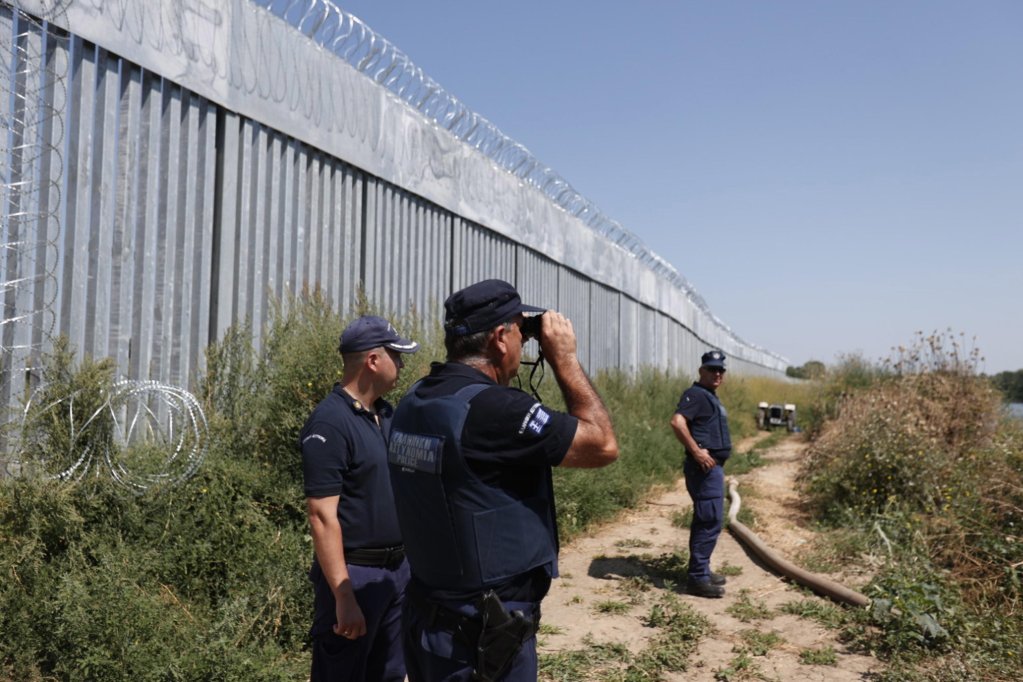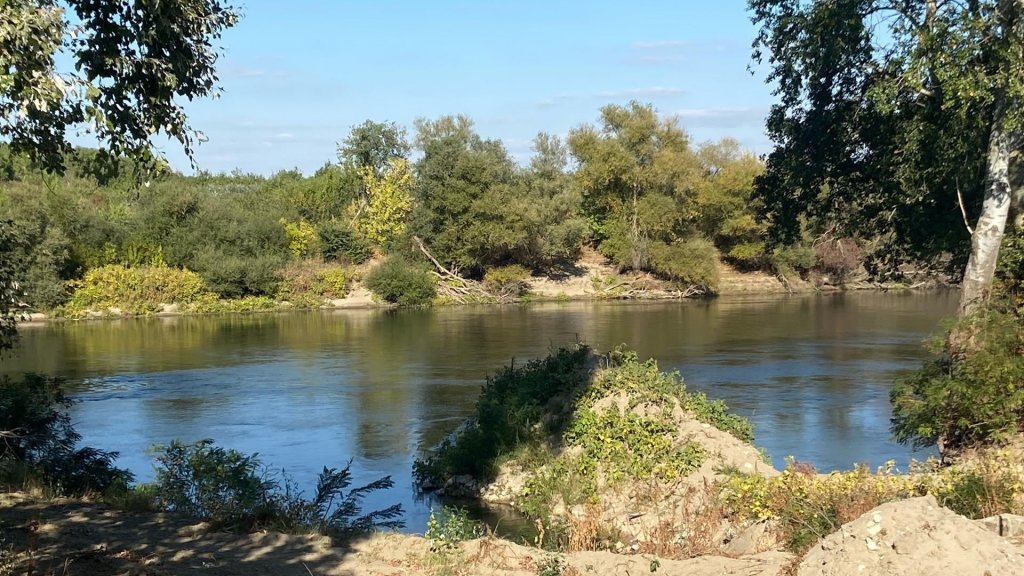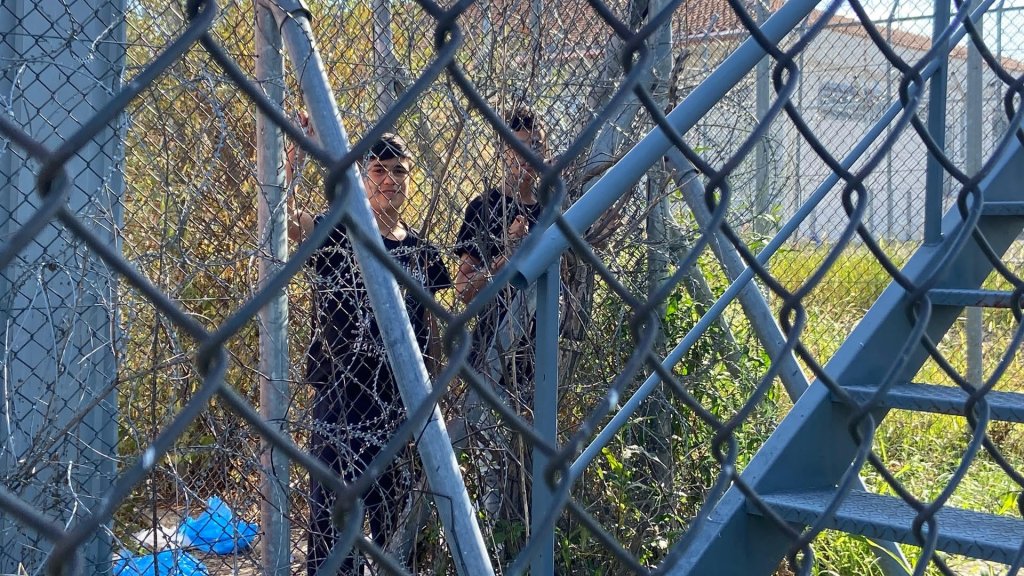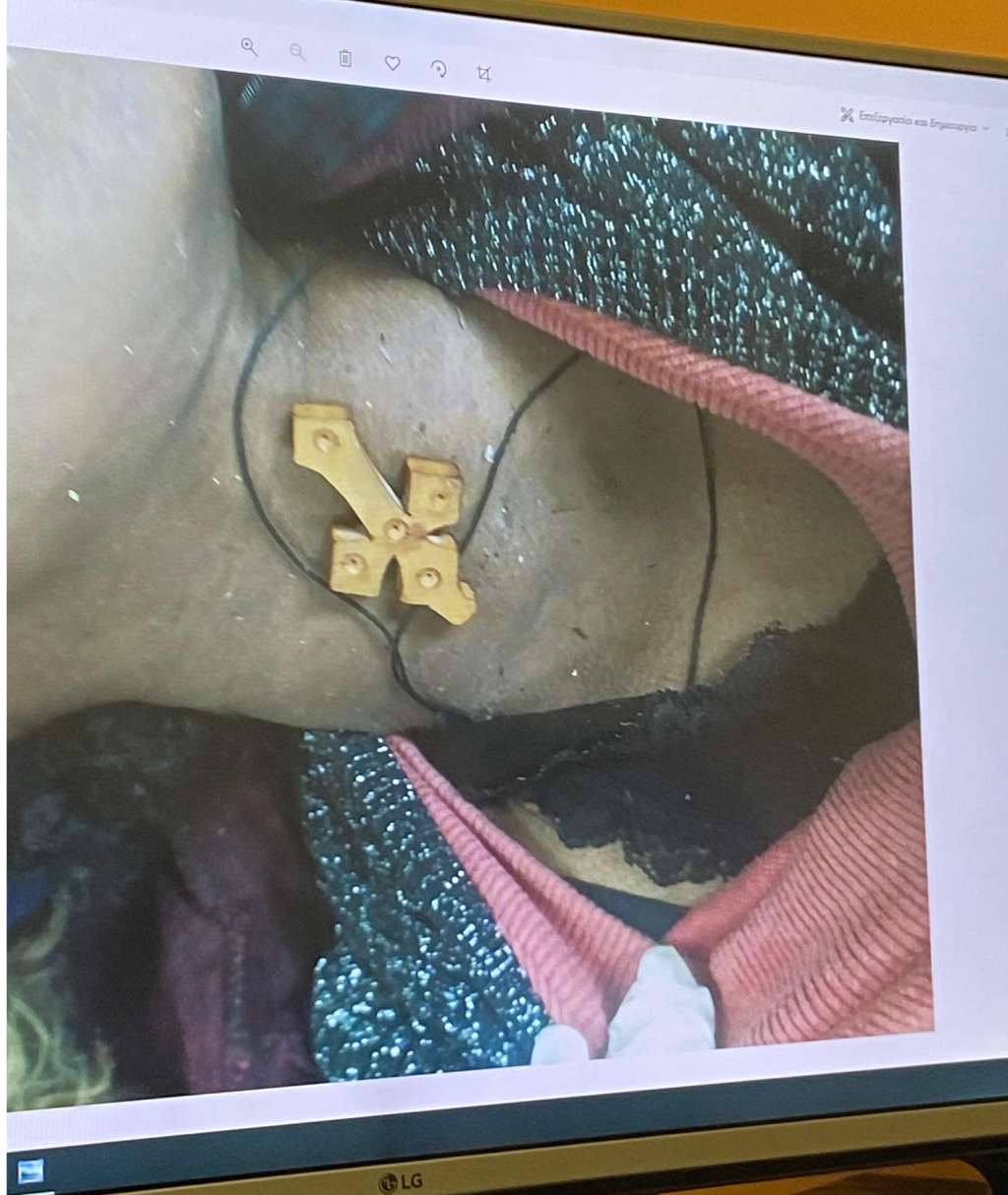 |
| Barbed wire near Kastanies in the Evros area. Photo: InfoMigrants/ Dana Alboz |
In response to a large number of migrants attempting to cross the Evros River from Turkey in March 2020, Greece installed significant military force in the area. Migrants who still manage to cross the border cannot receive any help from NGOs as everyone is banned from this military zone.
Running for 500 kilometers, the Evros River is a natural border that separates Greece from Turkey on the mainland. This inaccessible tip of Europe has been under the exclusive control of the Greek army for years.
Brambles, bushes and trees prevent anyone from approaching the militarized zone and the river. "There are cameras everywhere. Be careful, don't go too far," warns Tzamalidis Stavros, the chief of the northern village of Kastanies, as he walks along a working railroad to show us the border. In the distance, about two kilometers away, barbed wire is visible. Despite the distance, Stavros remains vigilant. "They have ultra-modern equipment. They will spot us very quickly".
This forbidden zone is not deserted by migrants. For many years, people on migratory journeys have crossed the Evros from the Turkish shores to enter the European Union. But the so-called migration crisis of March 2020, during which tens of thousands of migrants arrived in Greece via Kastanies after the opening of the Turkish borders, has made everything worse.
Read more: Evros river crossing: 'Turkey sends migrants there at night, Greece pushes them back at dawn'
In one year, Greece -- and the EU -- have invested millions of euros to build a border fortress: barbed wire walls have sprung up along the river, and sound cannons as well as military equipment such as drones were installed to prevent a new influx of migrants through the Evros.
"Today we have 850 soldiers patrolling along the Evros", says a border guard of the region, posted in the village of Tychero. "The barbed wire that was recently installed helps us a lot." [This barbed wire does not cover the entire border. It has been installed at various points, particularly towards Kastanies (north) and Feres (south).]

Information 'blackout'
These installations have helped to reduce the number of crossings. "In Kastanies, there used to be at least five people a day crossing the border. Today, almost no one crosses anymore," says the village chief, who says he is relieved. "The fence has stopped everything." But in other places, where there are fewer patrols, less surveillance, less barbed wire, migrants continue to cross, according to the association Border Violence, which monitors movements at European borders.
How many are there? The answer is unclear as the media are kept in the dark, with the Greek Foreign Ministry citing reasons of "national security". The Greek authorities do not communicate, the border guards deployed in the region remain vague and pass the buck to their superiors, and aid associations are not allowed in the area.
It is this "blackout" in the area that worries the NGOs. "Some migrants manage to get to Thessaloniki and they tell us about their crossing. But it takes 25 days on foot from Evros to here. So we get the information three weeks late," explains an spokesperson from Border Violence, in Thessaloniki.

Migrants arrested by Greek border guards in the area cannot testify about the conditions of their detention either. They are transferred directly to the Fylakio hotspot, the only camp in the region located a few kilometers from Turkey. Surrounded by barbed wire, Fylakio is one of seven closed centers in the country where migrants cannot leave. And where the media are also not allowed to enter.
"I crossed the Evros a month and a half ago and I've been stuck here ever since," a 14-year-old Syrian boy shouts to us from the camp. "We spent nine days in the Evros area and we were arrested with a group from my village, we are from Deir-Ezzor." He cannot tell us any more as a military guard arrives.
Read more: Greece tightens its border with Turkey amid 'tough but fair migration policy'
Thousands of pushbacks, according to aid organizations
The main concern of associations such as Border Violence -- but also of the UN High Commissioner for Refugees (UNHCR) -- remains whether the fundamental rights of asylum seekers are respected at the Evros border. "No one has access to the migrants there. The border policy is completely crazy! We, the activists, don't even go near the area! We are afraid of being arrested and put in jail," says the Border Violence spokesperson.
On October 1, Greece's Migration Minister Notis Mitarakis officially rejected the establishment of a "monitoring mechanism" at its borders, called for by the UN and the European Commission, saying it "undermines the country's sovereignty".
Margaritis Petritzikis, head of the UNHCR in the Fylakio hotspot, acknowledges that what is happening in Evros is opaque. "The border needs to be better monitored," he says, half-heartedly referring to pushbacks, those illegal removals between two neighboring states.

While Greek authorities deny practicing them, these pushbacks are said to be numerous and regular in this part of the country. "Obviously, there are pushbacks to Turkey," confirms a retired former police officer on condition of anonymity who receives us in his house less than five kilometers from Turkey. "I myself have driven boats for years bringing migrants back to Turkey after nightfall."
According to Border Violence, about 4,000 people have been illegally turned back since the beginning of the year. "There are certainly many more, but many people are not talking. They are afraid."
38 deaths in Evros since the beginning of the year
In addition to illegal pushbacks, the issue of violence is greatly worrying the NGOs. According to the New York Times, secret detention centers, called "black sites", are present in the region. "Migrants have told us about torture in these hidden centers in Greece, electric shocks, simulated drowning. We have not been able to verify these without access," says Border violence.

There is also the very real issue of how to count the victims, those who drown while attempting the crossing. Without access to the area, "we can't even talk about dead people but missing people," says Border Violence. "We consider that after one month without news of a migrant in the area, he or she is presumed dead."
According to Pavlos Pavlidis, one of the forensic doctors at the hospital in Alexandropoulis, the region's capital, already 38 people have died this year.
"Many drown in the Evros, others die of hypothermia. Especially in winter. They cross the river, they are soaked. No one is there to help them, so they freeze to death. Their bodies are sometimes found 20 days later by the police and taken to the hospital," he explains.
Are there any unaccounted-for victims? "Maybe," he answers. But without marauding, it is impossible to monitor the area and help potential casualties. "It's sad to die like this," he concludes, "They are far from home and far from everyone."
Charlotte Boitiaux, special correspondent in Greece.
12/10/2021

